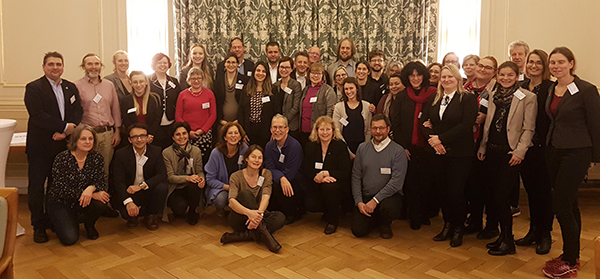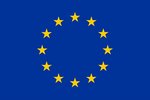Reflections on the past and the future at the CORE Organic anniversary

“Looking back, looking forward” was one of the leading themes at the CORE Organic 15 Years Anniversary Event in December.
“The organic agriculture is considered to be one of the important development pathways towards a more sustainable agriculture and food production.” With this statement, Ivana Trkulja (ICROFS*) and Elke Saggau (BLE*), coordinators of ERA-NET CORE Organic, welcomed the participants to the CORE Organic 15 Years Anniversary Event 10th December 2019 in Bonn, Germany.
Ivana Trkulja gave an introduction to the day that both recapitulated the passed successful years of the CORE Organic network and presented an overview over the research topics that CORE Organic has covered during the years. In that context she stressed the importance of programme continuity to create lasting networks both among the funders and also among the researchers. She also prepared the participants for the more future directed discussions related to transition from the present Horizon 2020 to the coming EC ‘Horizon Europe Research and Innovation Framework Programme’.
Ivana Trkulja also pointed at the fact that organic production has a holistic approach that can be further transformed towards the systems approach required as game changer for sustainable food production. Research in organic food and farming can and should support the change towards the ‘system thinking’ making the organic value chain even more sustainable.
Wiebke Müller from the National Contact Point in Germany presented a preliminary orientation about the Instruments of Horizon Europe and explained what Horizon Europe will look like – specifically regarding research on organic farming – and what partnership themes there will probably be and what the options are for existing networks like CORE Organic in this new landscape (see fact box):
| Fact box, Organics in Horizon Europe |
|---|
| Horizon Europe is divided into clusters where organic food and farming research is relevant for Pillar 2 ‘Global Challenges and European Industrial Competitiveness’ under the Cluster 6: Food, Bioeconomy, Natural Resources, Agriculture & Environment. During the co-creation process and consultations initiated in 2019 related to drafting of the first Strategic Plan of Horizon Europe, organic farming is mentioned under the Cluster 6 sub-topic ‘Agriculture, Forestry & Rural Areas’. |
Even deeper into the Horizon Europe structure we were guided by Susana Gaona Saez from the European Commission, DG AGRI. She also gave an overview of research and innovation activities for the organic sector in the ongoing Horizon 2020.
Often the relation between organic agriculture, that is quite well-defined by its principals and regulations, and agroecology is discussed; “What is really agroecology?”
“We define it simply as the science of ecological processes applied to agricultural production systems”, Susana Gaona Saez explained.
A ‘Strategic Research & Innovation Agenda for Organics and Agroecology’ was recently published and was presented at the anniversary event by Bram Moeskops, TP Organics.
“CORE Organic is a crucial partnership to build capacity in the organic sector at all levels”, Bram Moeskops stated.
Organic farming has the tools for the future
Erik Steen Kristensen was the first coordinator of CORE Organic. In his speech he explained what he thinks are the factors for the successful achievements of CORE Organic, as well as expressing his thoughts on the future potential of the network. He emphasized the role and success of the open-access archive Organic Eprints, that probably would not even have existed without CORE Organic.
Erik pointed at all the public goods and contributions to sustainability that organic farming is delivering, but also at weaknesses and challenges where strong transnational research collaborations along the whole food chain are needed, in particular for the challenge of reducing the climate impact from organic food and farming.
Gianluca Brunori contributed with a very appreciated speech about the process of the 5th SCAR Foresight ‘Natural resources and food systems: Transitions towards a “safe and just” operating space’, where he is Chair of the Expert Group. The Foresight exercises feeds the strategic planning in research policy making and gives advice to political decision makers. The 5th Foresight focuses on the key systematic transitions needed to meet the Paris agreements on climate change (COP21) and the United Nations Sustainable Development Goals and also enablers and lock-ins towards effective transitions as well as the cost for them. The Foresight has identified three transitions (see p. 11 in presentation) and Gianluca Brunori discussed the roles in those transitions for organic farming in the past and in the future.
“Organic farming can show that transition is possible”, he claimed.
Further, he stressed that a key issue is the relation between agroecology and organic. “Connected but not the same”, as he put it. “Organic is a set of rules in an economic context”. For the organic research, he called on research for circularity and generative agriculture system approaches, research on functional and response diversity, and research in order to restore soils and ecosystems etc.
“Go beyond the rules!”, he urged.
(See a short video where Gianluca Brunori summarizes his message)
From Horizon 2020 to Horizon Europe
The late afternoon was devoted to interactive sessions where future research priorities and the role of transnational cooperation were discussed. There was also a ceremony where CORE Organic ‘Best Research Projects’ were awarded (see separate article).
The “looking forward” discussions continued during the panel discussion on ‘Transnational Cooperation and P2P Networks’ involving Heather McKhann (FACCE-JPI*), Christian Breuer (ERA-NET SusCrop), Nicolas Tinois (ERA-NET SURPLUS), Elke Saggau (ERA-NET SusAn) and Elise Noujeim (CNRS-L, LB). The representatives of different of Joint Programming Initiatives all belonging to ‘agri-food’ sector discussed the future context of Horizon Europe and how to ensure closer cooperation among the networks (short videos with Heather McKhann and Elise Noujeim can be seen elsewhere on this page). CORE Organic looks forward to the new opportunities in the context of the Horizon Europe structure in a time when joint forces to develop more sustainable food systems are more needed than ever.
By Karin Ullven, SLU
*ICROFS = International Research Centre for Organic Food and Farming (DK), BLE = Federal Office for Agriculture and Food (DE), SCAR = Standing Committee on Agricultural Research, FACCE-JPI = The Joint Programming Initiative on Agriculture, Food Security & Climate Change
